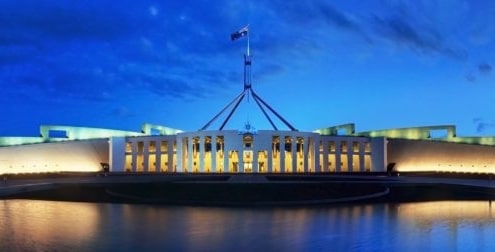For the first time in many years, the government has delivered a budget that has been widely approved by economists and opposition parties alike. Some commentators have even likened it to a ‘Labour Budget’ with more taxes on the banks and moves to support the NDIS and additional funding for schools
We’ve taken a close look at the budget itself and the expert commentary on the proposed changes to our financial system and compiled a list of the most relevant items for you.
The Federal Budget details the government’s intentions for revenue raising and expenditure for the forthcoming year and it is important to note that it is still to be considered by parliament before the new financial year.
Retirees encouraged to downsize
To increase housing stock, the Government is encouraging older Australians, aged 65 or over, to downsize their properties by allowing them to make a non-concessional contribution of up to $300,000 into their superannuation fund from the proceeds of the sale of their principal home.
Importantly, the normal super contribution rules such as ‘work test’ requirements that currently apply to those aged 65 or older will not apply to these contributions, and they can also be made by those with more than $1.6 million of total superannuation.
Removal of some deductions for property investors
From 1 July 2017, travel expenses incurred in inspecting, maintaining or collecting rent on residential investment properties will no longer be tax deductible.
In a separate proposal, depreciation deductions for plant and equipment in residential investment property will be limited to the actual expenditure incurred by the investor. This is to stop investors ‘double-dipping’ on deductions that may have already been claimed on the same assets by previous owners.
Medicare levy to be increased by 0.5% to 2.5% from 1 July 2019
To ensure all Australians can continue to access timely and affordable healthcare, the Government announced that it will set up the Medicare Guarantee Fund to pay for all expenses on the Medicare Benefits Schedule and the Pharmaceutical Benefits Scheme (PBS). The revenue raised will be allocated to Medicare benefits, the Pharmaceutical Benefits Scheme (PBS) and to fully fund the National Disability Insurance Scheme (NDIS)
Initiation of the First Home Super Savers Scheme
To help first home buyers get ‘into the game’, they will be able to save for a deposit by making additional voluntary contributions into their superannuation account from 1 July 2017. The First Home Super Savers Scheme will enable access to the tax advantages of superannuation with pre-tax contributions and earnings taxed at 15%, rather than marginal rates, and on withdrawal taxed at the relevant marginal rate, less 30% offset.
These voluntary contributions plus their deemed earnings can be accessed from 1 July 2018. Savers will not have to set up a new account, they can just use their existing super account while contributions will be limited to $30,000 per person in total and $15,000 a year. The contributions made will be counted under the relevant contributions caps.
The government has even gone as far as to provide a website for first home buyers to estimate how much better off they would be utilising the scheme.
http://budget.gov.au/estimator/index.htm
In other news
On the spending front, the government is also looking to provide:
• A further ramp up in infrastructure spending (by an additional $20bn over the forward years) including Western Sydney Airport, inland rail & various road projects.
• Extending the small business $20,000 asset write-off scheme and working with states to remove red-tape.
• $18.6bn over ten years in extra school funding (Gonski 2.0).
Which is being offset by:
• Increased university fees.
• A 0.6% levy on the major banks with liabilities over $100bn.
• More measures to curtail the cash economy and improve the integrity of the tax and welfare system.
So potentially a few interesting policies that could have a considerable impact on our client’s financial future. We will of course be in direct contact with affected clients if any of the above is legislated and will affect your wealth moving forward.
For an obligation free conversation about your financial future, please contact us on 03 9603 0072 or at advice@endorphinwealth.com.au
Phillip Richards and Robert Rich
Endorphin Wealth Management
Phillip Richards is a qualified Financial Advisor with over ten years’ experience.
Contact Phillip today to discuss how you can build your own wealth and plan to reach your retirement goals.
Robert Rich is a qualified Associate Financial Advisor with over nine years of personal investment experience.
Contact Robert today to plan for your retirement goals.
This information is general in nature and does not take your personal situation into account.
Contact Us today for quality financial advice so you can feel good about your future.










